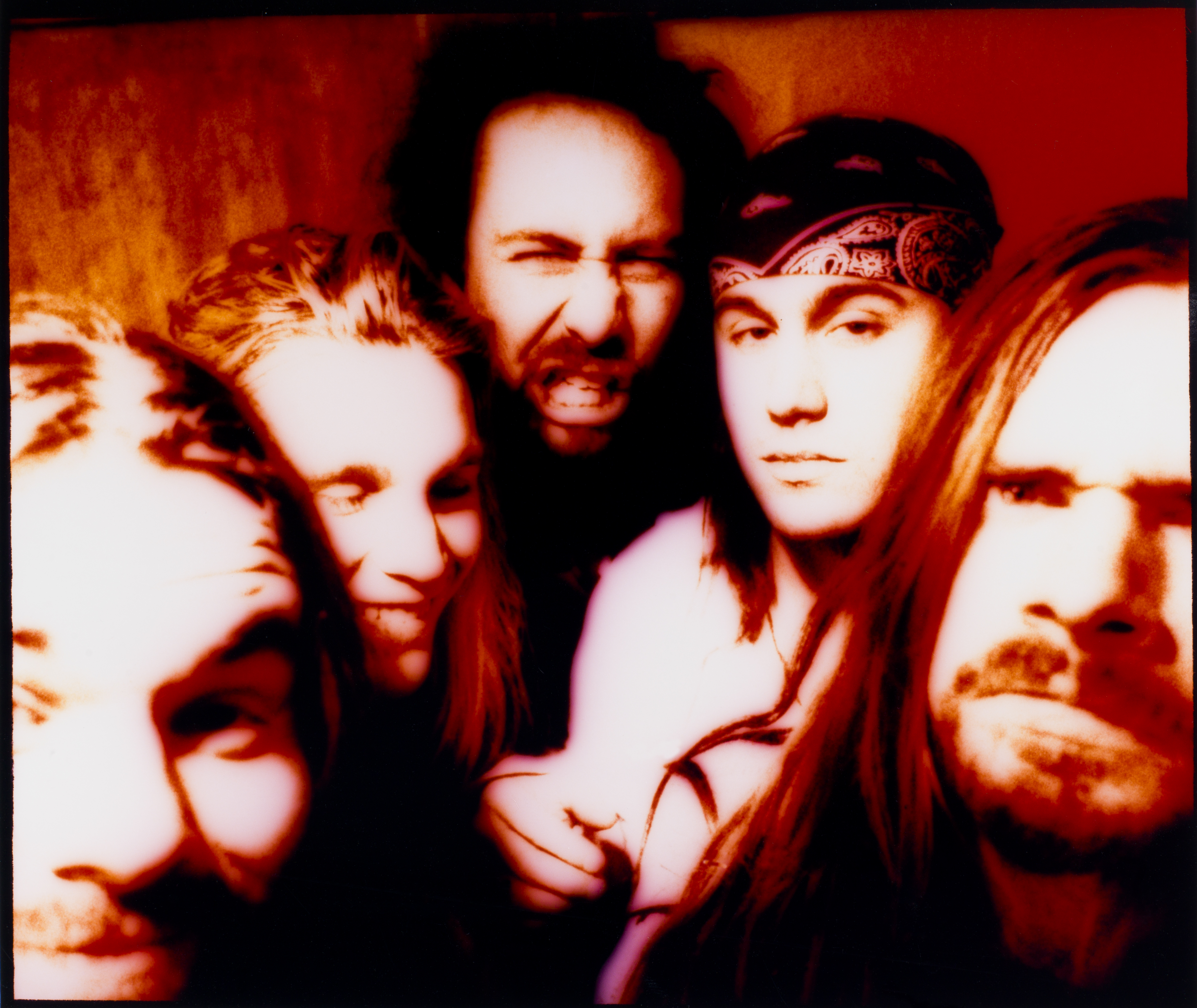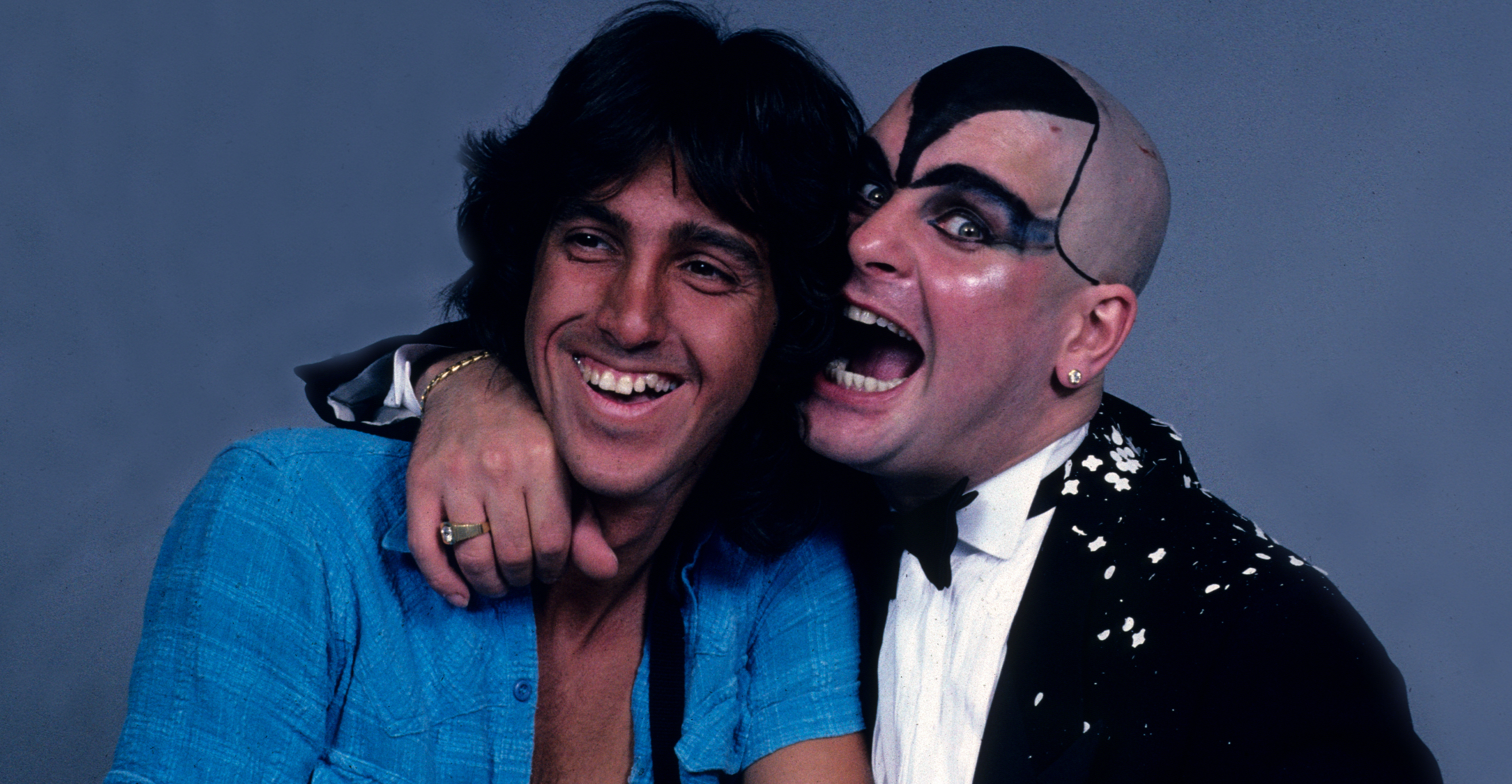A trip through SPIN’s 1985 archives reveals plenty of cool underground culture—deathrock, early industrial, Henry Rollins doing stuff. When it came to metal, however, coverage in ‘85 tended toward the glossy, poodle-haired end of the genre, with Mötley Crüe and Christian metallers Stryper getting the most ink.
Meanwhile, down in the metal underground, seeds were being sown for something uglier and way less pious. These seeds sprouted into bands from all over the world pushing metal to new extremes and embracing over-the-top depravity, with many of them defining entire subgenres with their stylistic shifts. These five releases show some of the clearest through-lines from 1985 to the extreme metal of 2020.
CELTIC FROST: To Mega-Therion
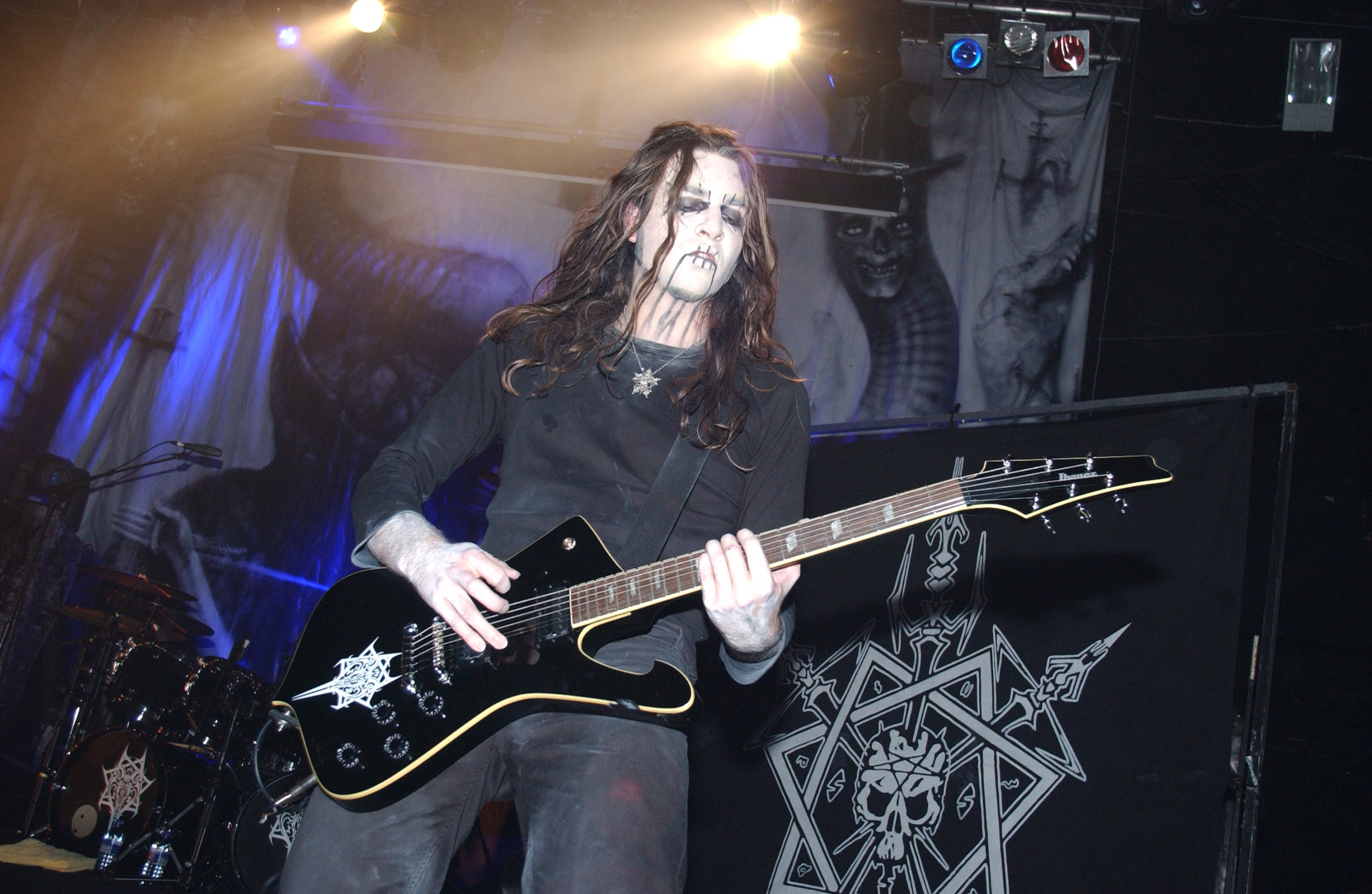
Switzerland’s Hellhammer took a brutal critical beatdown for their 1983 demo Triumph of Death, with UK music mags like Kerrang! and Metal Forces seeming to delight in savaging the band’s ability to play their instruments/right to exist.
The stink would follow the band through a name change to Celtic Frost. When Frost’s 1984 EP Emperor’s Return didn’t fare much better, Tom G. Warrior and bandmates responded the following year by scaling their ambitions far beyond their primitive origins with To Mega-Therion.
Released into the primordial ooze before thrash, death and black metal separated into their own lanes, To Mega-Therion revels in excess and tries just about anything. French horns? Sure! Opera lady vocals? Why not? It casually creates subgenres as it trudges along: Symphonic black metal from “Innocence and Wrath.” The stomping death metal of Obituary in “Circle of the Tyrants.” Sludgy riffing that would power everyone from Napalm Death to Nirvana, all over the place.
https://youtube.com/watch?v=sBI5H9CRf0I
Frost’s following LP Into the Pandemonium is more wildly experimental, but To Mega-Therion is the reason why their name still looms so large today. Yet, Hellhammer was rawer and cooler.
CORROSION OF CONFORMITY: Animosity
Raleigh, North Carolina’s Corrosion of Conformity wore their love for Black Sabbath on their sleeves from their earliest recordings. On their 1984 LP Eye for an Eye, it’s mostly in short sections of 90-second hardcore blurts. For Animosity the following year, they tilted the balance toward metal enough to land on a Metal Blade Records subsidiary, while retaining enough hardcore ferocity to define the crossover era.
Opener “Loss for Words” flips the script immediately, its doom-laden finale lasting longer than some tracks from the first album. Solos take on more structure and metal tinge on “Consumed” and “Positive Outlook.” The instrumental title track summarizes what they’d done to date while hinting at the future with Southern rock-style guitar leads. C.O.C. was lumped in with the triple-initial brigade of bands like D.R.I. (Dirty Rotten Imbeciles) and S.O.D. (Stormtroopers of Death – more on these guys below), but they were some influential SOBs who also informed a Southern brand of sludge represented by Eyehategod, Crowbar and Kylesa.
“I think C.O.C. fans knew they loved Sabbath and metal, so it wasn’t a shock” when Animosity hit, says Superchunk’s Mac McCaughan, from nearby Chapel Hill. “To me it was just classic C.O.C. with maybe some more metal guitar sounds.”
Superchunk got about as heavy as they get with a 2017 cover of the Animosity tune “Mad World.” “To be honest, it’s the one song we could really attempt to play as it’s the most straightforward,” McCaughan says. “Unfortunately, it’s also still relevant!”
SODOM: In the Sign of Evil
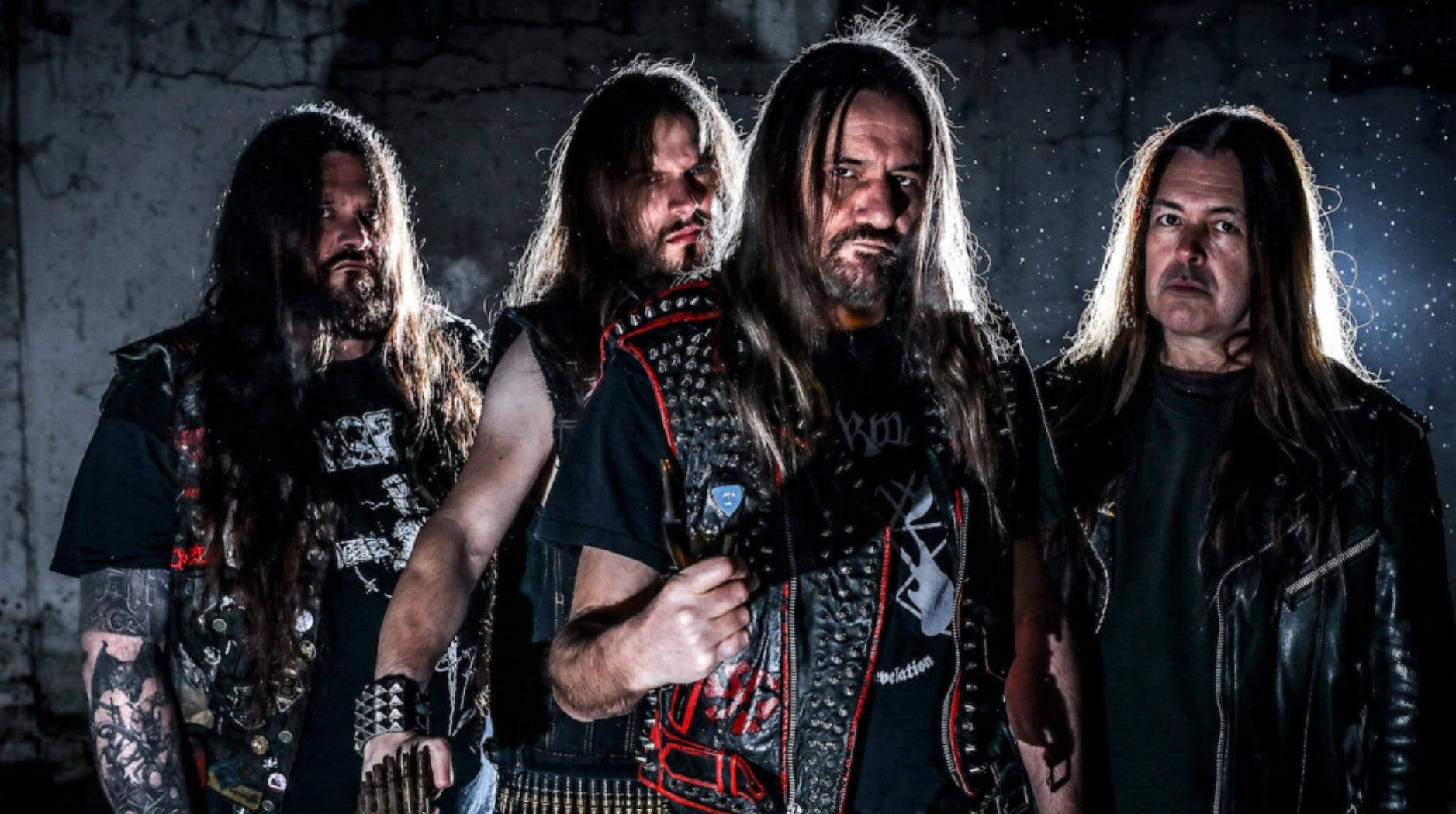
The many bands rampaging under the banner of “bestial” black metal—an ultra-relentless strain heavy on goats and gasmasks—owe a heavy debt to Sodom’s debut EP.
Formed in Gelsenkirchen, Germany, as bassist/vocalist Tom Angelripper was training to work in the local coal mine, Sodom’s goal of being “heavier than Venom and faster than Metallica” crashed into charming teenage amateurishness, resulting in a glorious mess of simplistic riffs and sloppy drum-bashing, thrashed out at maximum intensity.
“In the beginning, we just did the music for fun and as a kind of revolution against the parents, teachers and establishment,” Angelripper tells SPIN. “Metal fans were a minority, because music like ‘Deutsche Welle’ [German new wave] was very popular in the beginning of the ‘80s. But that drove us forward.”
While Sodom would tackle sociopolitical themes on future releases, the lyrics on In the Sign of Evil—a stew of Venom, Witchfinder General and Aleister Crowley, filtered through English as a second language—pushed over-the-top evil to crazed heights, birthing deranged couplets like “my life begins at midnight twelve, masturbate to kill myself!”
“These kinds of satanic lyrics were just fashion in those days,” Angelripper says today. “There was not any serious message behind [them].” But Scandinavia took notice: Second wave black metal bands like Mayhem and Darkthrone would use Sodom’s primal aggression and crude blasphemy as a jump-off point, taking them to much darker places…if you can imagine that.
STORMTROOPERS OF DEATH: Speak English or Die
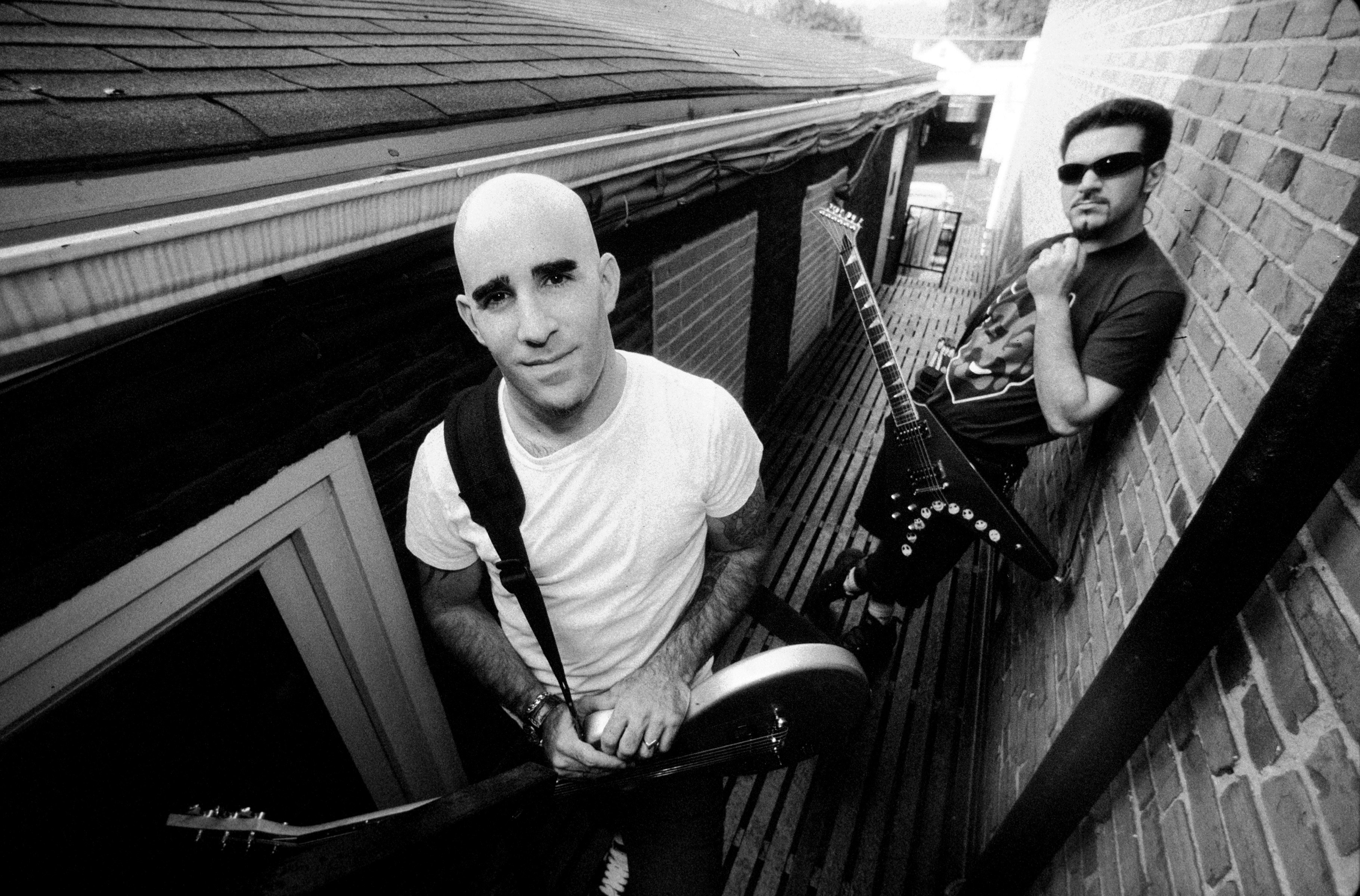
Yeah, Speak English or Die is a tough sell in 2020—so’s “Stormtroopers” if we’re being real. Bassist Danny Lilker knows it. “Let’s get the elephant out of the room. It would be impossible to release an album with the title and lyrics of that nature today,” he says. “And that’s kind of a shame, because we were just being obnoxious and provocative. We didn’t mean that shit.”
Stormtroopers of Death—Lilker, Anthrax’s Scott Ian and Charlie Benante, and roadie Billy Milano—dove headfirst into hardcore with the aim of pissing off punk institutions like monthly fanzine Maximum Rocknroll and singer Jello Biafra, with Milano spewing Archie Bunker-isms on a few tracks. But the music was no joke. Speak English still stands as a major injection site for hardcore’s influence on metal.
Lilker, who’d been ousted from Anthrax in 1984, got turned onto hardcore via college radio. Ian was also channeling hardcore riffs into a side project, and doodling comic book antihero/future mascot Sergeant “D.” As S.O.D., they fused thrash precision with the hyperspeed hardcore of bands like Siege. “Milk” stands as one of the earliest examples of the blastbeat, the drum beat that powers countless grindcore and death metal bands.
Speak English or Die achieved a weird cultural ubiquity. Opening instrumental “March of the S.O.D.” served as theme music for MTV’s Headbanger’s Ball for years after its release. It also unwittingly steered the direction of industrial metal, with Al Jourgensen writing in his autobiography that Speak English was the album that inspired him to add chunky metal riffs to Ministry’s electronics.
POSSESSED: Seven Churches
The Exorcist literalized early ‘70s parents’ fears of youth rebellion as demonic possession. Can you blame them? As those fears manifested in the U.S. over the following decade as the Satanic Panic, San Francisco’s Possessed were ready to puke up some blasphemies beyond the extremes metal had already reached. Full circle, debut LP Seven Churches kicks off with the familiar strains of “Tubular Bells” into “The Exorcist.”
“There existed what felt like an invisible line that nobody wanted to pass” in speed and imagery, says vocalist and bassist Jeff Becerra. Fueled by Venom, Hellhammer, and what Becerra calls “sheer teenage outlandishness,” Possessed gleefully stomped over it, giving death metal both its sound and its name in the process. “We were making an extremely hard break with traditional thrash,” he recalls.
One of the hardest breaks came from the vocals. Becerra spit the lyrics to tracks like “Pentagram” and “Satan’s Curse” in a harsh roar that codified “death metal voice” for generations of bands.
“Naively, I thought that Possessed would be the only death metal band,” Becerra tells SPIN. That’s not what happened. “Almost immediately I started hearing other bands calling themselves ‘death metal’”—the title of Seven Churches’ final song. And bands have been calling themselves death metal since.

